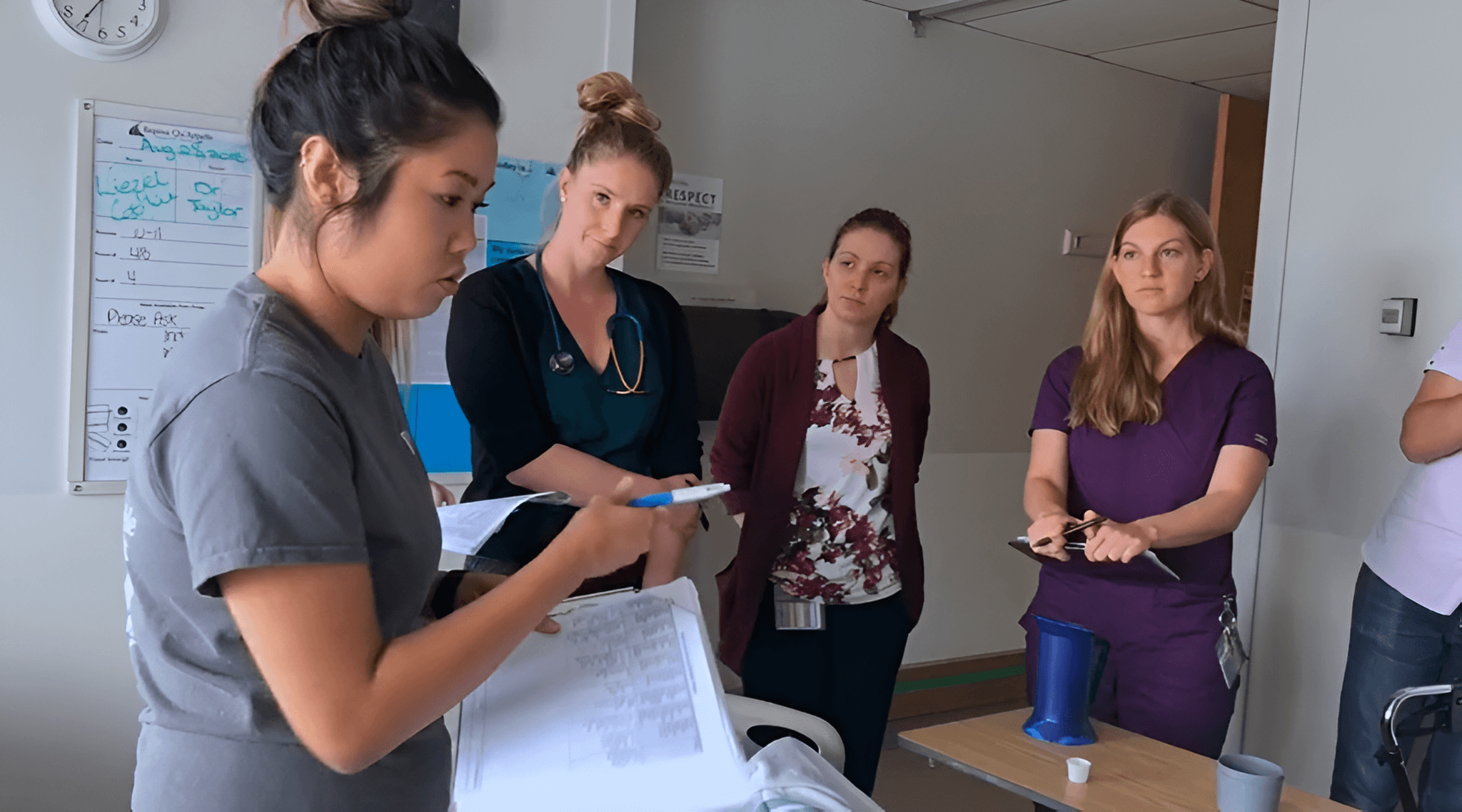Optimizing Hospital Rounds: Proven Strategies to Improve Efficiency and Patient Care


Introduction
Efficient hospital rounds are vital for ensuring high-quality patient care while optimizing team performance and resource management. However, unstructured rounds can lead to miscommunication, delays, and overlooked issues. By implementing a standardized and collaborative approach like Structured Interdisciplinary Bedside Rounds (SIBR), hospitals can significantly enhance the effectiveness of their daily rounds: saving time, improving throughput and reducing adverse events.
The Importance of Structured Rounds in Hospital Settings
Hospital rounds are the backbone of daily patient care. Without a clear structure, rounds can become disorganized, leading to wasted time and potential oversights in patient treatment. Optimizing rounds is critical for:
Reducing Delays: Time-sensitive interventions often depend on efficient decision-making during rounds. Structured rounds ensure timely care by keeping teams on track.
Improving Communication: Involving the entire care team—nurses, physicians, pharmacists, and other specialists—helps ensure that no critical details are missed. SIBR rounds encourage real-time input from every team member, ensuring the care plan is comprehensive.
Enhancing Patient and Family Involvement: A structured approach allows for better patient and family engagement, ensuring their concerns are addressed in a timely manner.
Key Steps to Optimize Rounds with SIBR
SIBR provides a systematic six-step process that organizes who says what and when, allowing teams to focus on patient-centered care efficiently. Here’s how you can implement this system to optimize rounds in your hospital:
Start with a Clear Plan:
Begin every round with a detailed Flight Plan. The charge nurse should coordinate with the care team to assign patients, prioritize cases, and estimate the time for each round. This upfront planning keeps everyone on the same page and reduces unnecessary delays. The plan also helps ensure that care for patients with complex needs or requiring interpreters is managed seamlessly.Maintain a Fixed Routine:
Team rounds should follow a consistent structure. Each round includes key components such as reviewing patient status, test results, and treatment progress. This predictability reduces miscommunication and ensures that every patient’s needs are addressed. Adhering strictly to this routine fosters efficiency and allows care teams to get into a rhythm that saves time.Focus on Real-Time Problem-Solving:
Encourage proactive decision-making during rounds by involving all disciplines in real-time. Invite nurses, pharmacists, and allied health professionals to offer insights before finalizing the daily care plan. This collaborative approach reduces back-and-forth communication after rounds and speeds up critical actions like discharges or medication adjustments.Leverage Technology for Efficiency:
Hospitals can digitize a SIBR Flight Plan using our dedicated software Platform to track rounds data. This ensures that vital metrics such as punctuality, patient-family engagement, and discharge clarity are recorded and monitored daily. Data collected from rounds can then be reviewed to improve processes and address gaps in care delivery, as part of unit governance and aligning with hospital operations.
Best Practices to Sustain High-Quality Rounds
To consistently optimize rounds, hospitals need to build and maintain strong routines and accountability. Here are a few best practices:
Train Staff for Consistency:
Training the entire care team to follow the structured communication protocol is essential for smooth and consistent rounds. SIBR involves specific roles for physicians, nurses, and other disciplines, all following a preset sequence to ensure clarity and thoroughness. For example, bedside nurses provide updates on overnight events, while physicians review treatment plans and solicit feedback from the entire team.Optimize Timing and Scheduling:
Time management is key to running efficient rounds. The SIBR Rounds Manager plays a pivotal role by keeping the team on track, making sure that the rounds commence and finish on time. Additionally, scheduling rounds based on nurse assignments rather than consecutive room numbers reduces interruptions to the nursing workflow and improves the overall efficiency of the team.Implement Plus-Delta Debriefs:
After each round, a quick “Plus-Delta” debrief (What went well? What could improve?) enables teams to reflect on their performance. This 1-2 minute debrief helps maintain high-quality rounds by identifying opportunities for improvement and reinforcing what is working. This continuous feedback loop fosters a culture of learning and excellence within care teams.Foster Leadership and Accountability:
The role of the SIBR Rounds Manager is crucial for keeping rounds organized and efficient. This leader monitors the team’s adherence to the schedule, provides constructive feedback, and holds staff accountable for being prepared. Ensuring that both physicians and nurses are on time and ready for rounds enhances overall flow and minimizes delays.
Keep Exploring Our Work



